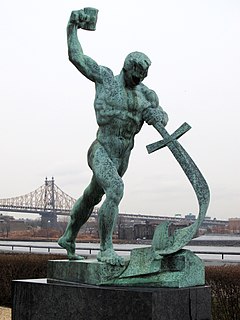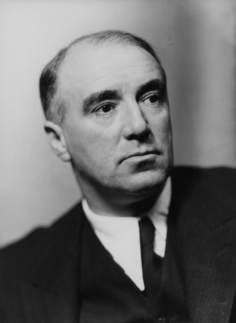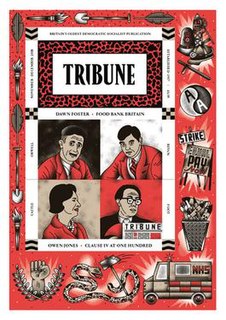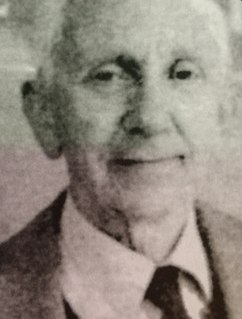
Disarmament is the act of reducing, limiting, or abolishing weapons. Disarmament generally refers to a country's military or specific type of weaponry. Disarmament is often taken to mean total elimination of weapons of mass destruction, such as nuclear arms. General and Complete Disarmament was defined by the United Nations General Assembly as the elimination of all WMD, coupled with the “balanced reduction of armed forces and conventional armaments, based on the principle of undiminished security of the parties with a view to promoting or enhancing stability at a lower military level, taking into account the need of all States to protect their security.”

Harry Pollitt was a British communist who served as the General Secretary of the Communist Party of Great Britain (CPGB) from 1929 to September 1939 and again from 1941 until his death in 1960. Pollitt spent most of his life advocating communism. Ideologically a Marxist-Leninist, Pollitt was an adherent particularly of Joseph Stalin even after Stalin's death and disavowal by Nikita Khrushchev. Pollitt's acts included opposition to the Allied intervention in the Russian Civil War and Polish–Soviet War, support for the Spanish Republicans during the Spanish Civil War, both support and opposition to the war against Nazi Germany, defence of the communist coup in Czechoslovakia, support for the 1956 Soviet invasion of Hungary, and criticism of British colonialism.

The New Communist Party of Britain is a anti-revisionist Marxist-Leninist communist party in Britain. The origins of the NCP lie in the Communist Party of Great Britain from which it split in 1977. The organisation takes an anti-revisionist stance on Marxist-Leninism and is opposed to Eurocommunism. After the fall of the Soviet Union the party was one of two original British signatories to the Pyongyang Declaration in 1992. It publishes a newspaper named The New Worker.

Tribune is a democratic socialist political magazine founded in 1937 and published in London, initially as a newspaper, then converting to a magazine in 2001. While it is independent, it has usually supported the Labour Party from the left. From 2008 it faced serious financial difficulties until it was purchased by Jacobin in late 2018, shifting to a quarterly publication model. Since its relaunch the number of paying subscribers has passed 15,000, with columns from high-profile socialist politicians such as former leader of the Labour Party Jeremy Corbyn, former Second Deputy Prime Minister of Spain Pablo Iglesias and former Bolivian President Evo Morales. In January 2020, it was used as the platform on which Rebecca Long-Bailey chose to launch her Labour leadership campaign.

Peter David Shore, Baron Shore of Stepney, was a British Labour Party politician and former Cabinet Minister, noted in part for his opposition to the United Kingdom's entry into the European Economic Community. His idiosyncratic left-wing nationalism led to comparison with the French politician Jean-Pierre Chevènement. He was described in an obituary by the Conservative journalist Patrick Cosgrave as "Between Harold Wilson and Tony Blair, the only possible Labour Party leader of whom a Conservative leader had cause to walk in fear" and, along with Enoch Powell, "the most captivating rhetorician of the age".
Peggy Duff was a British political activist who started off her career with a protest against the treatment of German prisoners of war in Britain after the Second World War. She was principally known for her contribution to the peace movement as the organiser of the Campaign for Nuclear Disarmament. She was described by Noam Chomsky as "one of the people who really changed modern history".

Walter Jakob Wolfgang was a German-born British socialist and peace activist. He was Vice-President and Vice Chair of the Campaign for Nuclear Disarmament up to the time of his death, and a supporter of the Stop the War Coalition. He became better known to the general public after cameras recorded him being forcibly ejected from the annual Labour Party Conference in Brighton on 28 September 2005 for shouting "nonsense" during Jack Straw's speech on the Iraq War, in an incident that provoked much media comment and embarrassed the Labour leadership.
Meg Beresford was a British campaigner against nuclear weapons and general secretary of the Campaign for Nuclear Disarmament from 1985 to 1990.
The Coalition for Peace Through Security (CPS) was a campaigning group founded in September 1981 and active in the UK throughout the early and mid-1980s. It strongly opposed unilateral nuclear disarmament and withdrawal from NATO as advocated by the Campaign for Nuclear Disarmament, supporting instead the replacement of Polaris by Trident and the deployment of NATO cruise missiles after the Soviet Union began deploying its SS20 missiles in 1977. The basis of the CPS case was set out in detail in a book published towards the end of the campaign, Paul Mercer's "Peace" of the Dead, and many of its arguments at the time can still be found on the website of Julian Lewis, formerly its Research Director.

Hugh Gater Jenkins, Baron Jenkins of Putney, was a British Labour politician, campaigner and member of Parliament (MP) and the House of Lords.
Lawrence Daly was a coal miner, trade unionist and political activist.

The Communist Party of Britain (CPB) is a communist party in Great Britain which emerged from a dispute between Eurocommunists and Marxist-Leninists in the Communist Party of Great Britain in 1988. It follows Marxist-Leninist theory and maintains support for socialist states around the world. It is a member of the International Meeting of Communist and Workers' Parties, together with 117 other political parties.

The Communist Party of Great Britain (CPGB) was founded in 1920 through a merger of several smaller Marxist groups.

The Campaign for Nuclear Disarmament (CND) is an organisation that advocates unilateral nuclear disarmament by the United Kingdom, international nuclear disarmament and tighter international arms regulation through agreements such as the Nuclear Non-Proliferation Treaty. It opposes military action that may result in the use of nuclear, chemical or biological weapons and the building of nuclear power stations in the UK.

Bill Alexander, born as William Alexander, was a leading activist within the Communist Party of Great Britain (CPGB), most known for commanding the British Battalion of the International Brigades during the Spanish Civil War. During World War II he underwent a commissioning course at Sandhurst military academy, graduating top of his year. He then served in Germany, Italy and Northern Africa, during which he was promoted to the rank of captain in the Reconnaissance Corps. Later in life he became an author, the vice-chairman of the International Brigade Association, and the president of London's Marx Memorial Library. Alexander spent the remainder of his life promoting Marxism–Leninism, and was a member of the CPGB until the party was dissolved in 1991.
William Wainwright was a British communist activist.
Alexander Gossip was a Scottish trade union leader and political activist.

Far-left politics in the United Kingdom have existed since at least the 1840s, with the formation of various organisations following ideologies such as Marxism, revolutionary socialism, communism, anarchism and syndicalism. They have also existed as factions in the Labour Party, called the "hard left".

Graham Stevenson was a British communist, trade union leader, and historian who specialised in the history of British socialist and labour activist biographies. He led a career as one of the most influential trade union leaders in Britain, becoming the national secretary of the TGWU IN 1999, and as a founder and later president in 2009 of the European Transport Union Federation, he helped organise strikes across European docks in 2003, forcing the European Union to stall privatisation plans. Between 2007 and 2008, Stevenson played a key part in the negotiations that formed Unite the Union, the largest trade union in the United Kingdom. He also served on the Executive and Political Committee of the Communist Party of Britain (CPB), and served as the treasurer of the Marx Memorial Library from 2013 to 2019.

Alf Salisbury was a British communist, Jewish activist, trade union leader, and anti-fascist. During the 1930s he smuggled monetary support from British communists to German communists to help resist the Nazis. Salisbury was present at many key events in the history of anti-fascism, including the Battle of Cable Street, and was also a member of the International Brigades during the Spanish Civil War (1936-1939). In his later life, Alf Salisbury led a successful campaign to convince the BBC and other British news outlets to stop using the term "Mongols" to refer to people with Down Syndrome. For this work he was awarded with special commondations from the Mongolian embassy and a stay in a Mongolian health spa. He was a member of the Communist Party of Great Britain (CPGB), before becoming a founding member of its continuation, the Communist Party of Britain (CPB).













